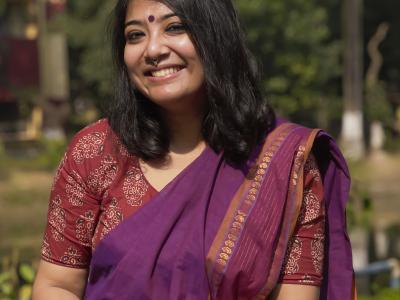
An IASH Work-in-Progress seminar, delivered by Dr Anurima Chanda (Charles Wallace India Trust Fellow, 2025)
In Search of the Indian Child
A couple of years ago, while serving on the shortlisting committee for the Scholastic Writing Awards, I reviewed nearly 1,618 entries from children across India. What struck me was that most stories were set in snowy winters, featured picnics with ginger beer, had anglophone names, and took place outside India. Only a handful reflected Indian realities. This was hardly surprising, as their writing mirrored a broader trend where Indian children’s books, written in English, often focused on upper- and middle-class experiences while overlooking socioeconomic inequalities, caste, and class issues. Rooted in colonial legacies, this construction of childhood (which remains prevalent even today) reflects postcolonial aspirations that privilege elite perspectives. This elitist view institutionalises inequality by sidelining those who do not “meet the standards.”
This exclusionary view has deep historical roots. Children’s literature in India emerged during the colonial era, shaped largely by British missionaries. Before this, India’s rich oral traditions engaged young audiences but were not aimed exclusively at children. Colonialism introduced Western ideals of childhood that idealised a limited, elite experience, sidelining diverse realities. Post-independence, children’s literature became a nationalist tool, promoting unity and progress while glossing over social and economic complexities. In the past two decades, however, a shift has emerged. Independent publishers have begun creating space for more nuanced representations of childhood, addressing issues like poverty, illiteracy, child labour, violence, and caste and gender divides—subjects previously taboo in children’s literature.
The first part of my presentation will explore this shift and highlight works that challenge the “one-size-fits-all” notion of childhood. The second part of my presentation will advocate a decolonised childhood studies framework, drawing on my research into colonial-era periodicals to uncover early Indian conceptions of childhood and offer alternatives beyond Western models.
Please join in-person, or click the link below to join the webinar:
https://ed-ac-uk.zoom.us/j/83015772676
Passcode: b1QpaAD7
